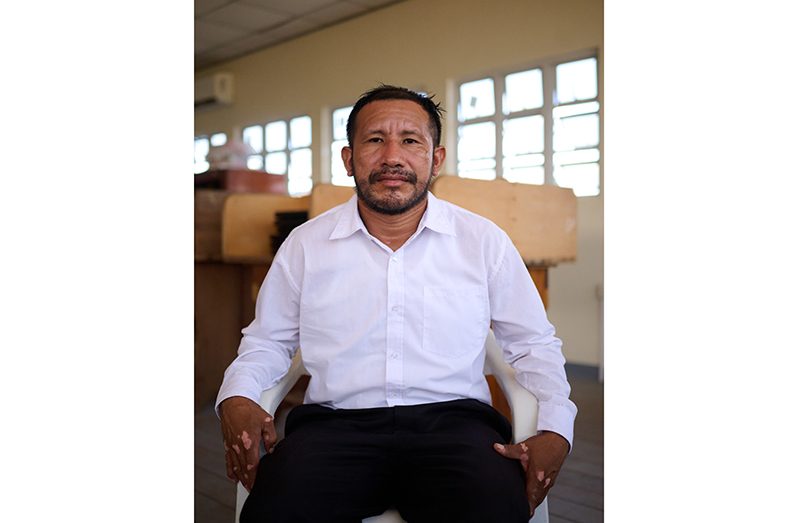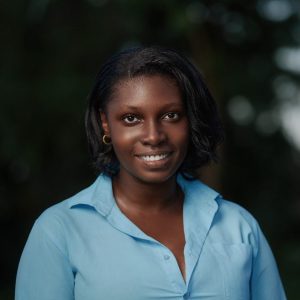How one man’s passion for education is helping to shape the future of Guyana’s Rupununi region
THE Rupununi, a vast region in south-western Guyana, is a land of contrasts. Known for its sweeping savannahs, vibrant indigenous cultures, and the famous red dust that coats everything during the dry season, this area has long captured the imagination of visitors and locals alike. Historically, the region has been home to a vibrant system of cattle rearing, agriculture, and trade. These traditional activities have shaped the Rupununi and are often what visitors and tourists come to see and experience. But the Rupununi is much more than vaqueros (cowboys), ranches, and mountain ranges. It is a captivating place that is home to a tightly-knit community determined to continue the diversification of the region.
This week, the Pepperpot Magazine spent time talking to Norbart Salty, a teacher living and working in the community of Annai and one of the many men and women who are bringing the skills of the Rupununi to the forefront. Norbart’s story is a testament to the changing face of this region, where traditional ways of life are being complemented by new opportunities in education and community development.
Childhood in the Rupununi.
Norbart is from Kwatamang Village, one of five satellite communities that make up Annai Village. It may be easy for newcomers to get confused and lose their bearings in a community like Annai, but as Norbart explains, Annai is bigger than most would imagine and is made up of five other communities, among them Bina Hill, where he works, and Kwatamang, where he lives. As he shared, “The five-satellite community has one land title. So, by right, we are all Annai Village residents. Most people do not know this and think that everything is just Annai.”
Norbart says his earliest and some of his best memories of the Rupununi are of his growing up in the community, a childhood he describes as traditional by all means. “I would say I grew up in a traditional way, meaning by farming, hunting, and working with my parents. I had to do a lot of chores. You have to wash the wheels, sweep the house, get the chores done, and so on,” he said.
The landscape of the Rupununi, with its wide-open spaces and winding rivers, played a significant role in shaping Norbart’s childhood experiences. He recounts a particularly memorable incident: “My dad and I were paddling in a small canyon. We were coming up from our fishing ground… It was around 8 or 9 o’clock in the day. We were trying to cross this particular creek, but the current of the water had more force. So, we couldn’t manage to cross it. Instead, our boat got turned off, and quickly, we got capsized.” This experience, while frightening at the time, is now a cherished memory that showcases the close connection between the people of the Rupununi and their environment.
Educational journey and community leadership
After completing school in the region, Norbart’s ambition for education became increasingly clear. His educational endeavours did not stop when he finished school, however, and Norbart furthered his education later in life. As an adult, he undertook a number of courses and became a major part of initiatives put on by the government. One of his biggest achievements, he says, was being able to represent Guyana in Canada. “I got recommended from the institution to represent the young people here. And I went to Canada, which was an exposure for me. I went there twice.”
This international experience opened Norbart’s eyes to different ways of life, but also reinforced his appreciation for his homeland. “I even went to Brazil and had an experience with my aunt where it’s a different lifestyle. So, I saw how the city was there in Brazil,” he said. “But the beauty of our country will always be the most captivating thing I have ever seen.”
His education was the first step in becoming a leader in his community. “I also became a leader in my community. A senior counsellor. Not a Toshao, but somebody like a Toshao. I had a full-time service for my community,” he said. In Amerindian villages, a Toshao is the elected village chief, a position of great responsibility and respect.
Teaching and Capacity Building at Bina Hill Institute
Norbart’s big break came in the form of his current job as an educator at the Bina Hill Institute in Annai. The institute, established in 2001, plays a crucial role in providing vocational and life skills training to young people in the North Rupununi. It focuses on sustainable development, traditional knowledge, and modern skills that are relevant to the region’s needs.
Recounting his application for the job, Norbart said, “When there was an advertisement here, I applied. And that was one of the criteria – you must have completed ICT training. So, I got accepted. I was interviewed, and then, right away, I got a job offer.” Today, Norbart works as a teacher and community leader and is one of many persons seeking to pioneer education and capacity building in the region. Working alongside other institutes in Guyana, Norbart is seeking to diversify and maximise the skilled personnel in the region. “Currently, what I’m doing now – we have a programme with the Canadians. We’re working along with two other institutes: NATI (New Amsterdam Technical Institute) and ETI (Essequibo Technical Institute). We’re trying to elevate ourselves in capacity building, doing curriculum development, content delivery.” he said.
This collaboration is part of a broader effort to enhance the quality of education in the Rupununi and to equip young people with the skills they need to contribute to the region’s development while preserving its unique cultural heritage.
Looking to the Future
Norbart sees great potential in the Rupununi and Guyana at large, but he emphasises that achieving a better quality of life takes cooperation. “Well, I would say that let’s work together. This is Guyana. One Guyana. And we need to work hand in hand to develop our own function. I think we need a better life, and we have to work together to get it.” As the region continues to develop and diversify, individuals like Norbart are at the forefront, bridging the gap between tradition and innovation and working tirelessly to build a brighter future for Guyana.



.jpg)








